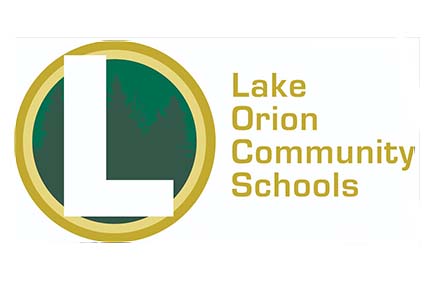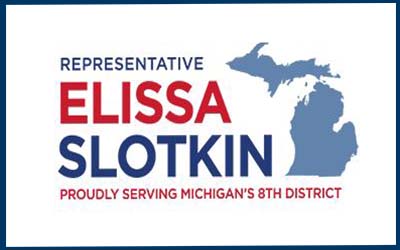
$95.24 million in Clean Water grants
|
|
|
|

|
|
|
|

Press Release FOR IMMEDIATE RELEASE: Feb. 22, 2024 CONTACT: Lynn Sutfin, 517-241-2112, SutfinL1@michigan.gov Nearly $250 million included in FY25 budget to expand access LANSING, Mich. – As part of the state’s continued commitment to expanding access to behavioral health services for Michigan families, Gov. Gretchen Whitmer’s FY2025 budget proposal includes $193.3 million to strengthen Michigan’s Certified Community Behavioral Health Clinics (CCBHC) demonstration program. Funds will be used to expand the number of CCBHC sites and establish more robust support, as well as oversight and monitoring, for Michigan’s Medicaid CCBHC demonstration. CCBHCs are non-profit or local government agencies that are federally required to provide nine comprehensive behavioral health services, including 24/7 mobile crisis response and medication-assisted treatment for substance use disorders.
Michigan Department of Health and Human Services (MDHHS) Director Elizabeth Hertel visited with Network 180, a Community Mental Health Authority that includes a CCBHC site in Kent County, Thursday, Feb. 22. The CCBHC model increases access to numerous behavioral health services by serving all individuals with a behavioral health diagnosis, regardless of insurance or ability to pay,” said Elizabeth Hertel, MDHHS director. “The CCBHC model has been shown to substantially increase access to care, advance the coordination of physical and behavioral health, strengthen community partnerships, address health inequities and improve the quality of behavioral health services.” The FY25 budget proposal will support expanded access to behavioral health supports and services for up to 50,000 additional Michigan residents. There are currently 30 CCBHCs in Michigan’s Medicaid demonstration project, as well as several additional provider organizations currently receiving federal grant funding to establish clinics and provide CCBHC services. In FY23, 13 Medicaid-funded CCBHCs provided services to approximately 75,000 unique individuals across Michigan. Approximately 30% of individuals served were children and young adults ages 0 to 21 and 70% were adults. Additional budget recommendations include funding to increase access to behavioral health services through direct program capacity enhancements, a managed care rate increase for behavioral health services, incentives to build a pipeline of qualified providers and ongoing resource support for people experiencing behavioral health crises.
Pictured during the MDHHS visit to Network 180 are (l. to r.) Sarah Desmarais, MDHHS senior advisor of economic stability operations and programs; David Knezek, MDHHS chief operating officer; Beverly Ryskamp, Network 180 chief operating officer; MDHHS Director Elizabeth Hertel; Bill Ward, Network 180 executive director; Amy Rottman, Network 180 chief financial officer; and Kristin Spykerman, Network 180 chief clinical officer. |

| Gov. Whitmer’s proposed budget includes more to enhance opportunity for all |
|

 |
|
|
|||||||||
     |
|||||||||
 |
|||||||||
|
|
|||||||||
  |
|||||||||
The February 27, 2024 election will feature two millage proposals, which are designed to maintain the current tax levies. One will be for the 10-year operational millage, which the state of Michigan requires every public school district to pass to receive full foundation allowance for each student. The second proposal is to replace the 10-year sinking fund, which pays for infrastructure repairs (parking lots, HVAC, computers, etc.) throughout the district. Information about the millage proposals, including Frequently Asked Questions, is located on the School Election Information page. LOCS voters can vote:
The winter issue of Orion Living magazine also features an explanation on the two LOCS millage proposals. |
|||||||||
  |
|||||||||
Lake Orion Community Schools began celebrating its 2023-24 Teachers of the Year in recent weeks, with the elementary, middle and high school levels recognizing an individual for the district honor. Each will advance to the Oakland Schools group, where the Oakland County Teacher of the Year will be selected in each category. Orion Oaks Elementary’s Norman Wright is the elementary representative, Oakview Middle School’s Nick Shaskos is the middle school selection and Lake Orion High School’s Michael Steele was picked for the high school level. Watch all of their announcements. |
|||||||||
2024-25 CalendarsThe 2024-25 Lake Orion Community Schools calendars are now available by visiting the LakeOrionSchools.org calendar page. A single sheet of the important dates is also listed on that page.
|
|||||||||
Parent UniversityThroughout the 2023-24 school year, the LOCS Teaching and Learning Department will offer evening programs for parents/guardians to be able to take a more active role in their child’s education. Some of the workshops are in-person evening events that last approximately an hour. Parent University will also be sharing out some recorded videos for parents/guardians to view at a time that fits into their schedule. Upcoming in-person sessions:
In November, the Vaping 101 presentation for all families featured a number of resources.A Parent University calendar for the 2023-24 school year is located on the Parent University website page. |
|||||||||
Updated 2024-25 Elementary Start TimesIn the 2024-25 school year, LOCS will be flipping the elementary school start times. The schools that are currently early start/release times (Paint Creek, Stadium Drive, Webber) will shift to the late start/release schedule. The schools that are current late start/release times (Blanche Sims, Carpenter, Orion Oaks) will move to the early start/release schedule. The change is to allow a different group of district families to be able to schedule earlier after school appointments and the advance notice of nearly 16 months is to allow those families to make long-range plans if necessary. The change will return on a regular three-year cycle.
|
|||||||||
Care SolaceWhen you or your child needs help, it’s hard to know where to turn. In an effort to ease the burden of finding the mental health and substance use services you need, Lake Orion Community Schools has partnered with Care Solace. Care Solace will help you find the right help at the right time, 24/7/365. Care Solace’s services are available at no cost to you – and all of your information is kept completely confidential. They will connect you with providers accepting all medical insurances including Medicaid, Medicare, and sliding scale options for those without insurance. You can access Care Solace services in three ways:
For more information visit the LOCS Care Solace page. |
|||||||||
LOCS Detroit Red Wings NightThe Lake Orion Education Foundation has partnered with the Detroit Red Wings to organize the LOCS night at Little Caesars Arena for the Wings’ game hosting the Buffalo Sabres on March 16, 2024, at 12:30 p.m. To purchase tickets with the LOCS group, visit https://fevo-enterprise.com/ A portion of each ticket will support the LOEF, which in turns provides teacher grants and opportunities to support students throughout the district. The LOEF is a group of parent, community and LOCS staff volunteers, fundraising to obtain resources to provide grants to teachers and scholarships to graduating students. For more information and to join or support the LOEF, visit LakeOrionSchools.org/LOEF. |
|||||||||
Storm Water SurveyAs part of its agreement to protect water quality, LOCS is collecting information about how students/staff/community members engage with the watershed, their water quality concerns, and actions they’ve taken to prevent pollution or protect the environment. This understanding could help LOCS select the best PEP topics to highlight in educational materials to better educate the community going forward. If you would like to participate in the survey: https://www.surveymonkey.com/ |
|||||||||
KindergartenLake Orion Community Schools has opened registration for the 2024-25 school year for Kindergarten students. All children living in the LOCS school boundaries are eligible to enroll at LakeOrionSchools.org/Enroll. Kindergarten information is available at LakeOrionSchools.org/
|
|||||||||
“Champions of Hope and Leadership” podcastLOCS Superintendent Ben Kirby’s monthly podcast, “Champions of Hope and Leadership,” spotlights leaders who impacted those around them. The inspiration for the podcast comes from the amazing people that have shaped, inspired, and given Mr. Kirby hope as he has navigated his career as an educator and the people he has witnessed as Champions of Hope and Leadership. |
|||||||||
Winter Weather InformationLOCS will make a sincere effort to call snow days as early as possible when a significant weather event is approaching. The district administration understands the challenges a late snow day call creates for families and will make every effort to avoid that. But there are often circumstances when a decision must be made in the morning of a school day. With safety as the top priority, the goal every day is to have students in school, safely traveling to and from the buildings. If LOCS sends an emergency message, including snow days, families will be contacted in the traditional manner, via School Messenger email, text message and phone call. The information will also be shared with the local media via the traditional broadcast outlets, posted on the LOCS website and social media channels, and on the school digital signs when possible. |
|||||||||
Distinguished Dragon Staff RecognitionLake Orion Community Schools is launching a program in 2023-24 to recognize LOCS staff members for their excellence. The intent of the Distinguished Dragon program is to ensure that staff members who go above and beyond their regular duties are appreciated. The additional effort or support can range from helping an individual to helping a group or any effort that seems worthy of praise. The staff member can be nominated by a student, parent, community member or colleague by completing the form at LakeOrionSchools.org/ Please complete the form entirely so the individual can be appropriately honored for the contributions. |
|||||||||
CommunicationsLake Orion Community Schools has a number of paths to communicate with families and the community. Information on social media, district email communications, the LakeOrionSchools.org website and mobile phone app, as well as external flyer information is available.LOCS tested its emergency communications on Sunday, November 12. If you did not receive any of the outlets (email/text/phone call) and would like to in the case of an urgent school or district-wide matter, please adjust your School Messenger settings. |
|||||||||
Text MessagesLOCS parents and staff who are interested in receiving text messages from the district and the student’s school through School Messenger must opt in to receive them. LOCS sends text messages when there is a time-sensitive circumstance (usually a school closing or a bus delay.)If a parent/guardian is not receiving text messages from LOCS and is interested, please opt in by texting Y to the number 67587. More details are available in the attached form. |
|||||||||
Now HiringLake Orion Community Schools consistently hires the best and brightest staff members to bring our students an elite education. The district is always looking for talented individuals to work in a variety of areas and offers competitive pay and benefits for most positions. If you know anyone interested in a position — from driving a bus, to working in a cafeteria, to connecting in a classroom — chances are there is a great opportunity available. |
|||||||||
Transportation |
|||||||||
Strategic Plan 2022-27Earlier this spring, the Lake Orion Community Schools Board of Education approved the strategic plan to guide the district from 2022-2027. The plan includes a mission statement, a vision statement, belief statements and focus areas to guide the district administration. Three times a year, the LOCS Administration offers updates to the Board of Education on the recent progress. The most recent update was presented at the end of November.
Belief statements We believe…
Mission Empowering the Dragon community to achieve excellence |
|||||||||
Upcoming Important DatesFebruary 29 — High School — Parent-Teacher Conferences March 5, 7 — Middle School — Parent-Teacher Conferences March 15 — Elementary/Middle Half Day March 25-29 — All Schools (Spring Break) |
|||||||||
|
|
|||||||||
|
|
|||||||||
|
|||||||||
Follow Us on Social MediaLake Orion Community Schools shares information about district news and updates on the social media channels: @lkorionschools on Twitter, @lkorionschools on Instagram, @lakeorioncommunityschools on Facebook and @lakeorioncommunityschools on YouTube.
|
|||||||||
LOCS District Contacts
Email: communications@lok12.org |

|
|
| Calling all artists: now is the time to get your entries ready for the 2024 Congressional High School Art Competition!
Each spring, Congresswoman Slotkin is proud to sponsor this high school arts competition along with her colleagues in the House of Representatives. The Congressional Art Competition is an opportunity to recognize, celebrate, and encourage artistic talent in the nation, as well as in our district. The competition is open to all high school students who either reside or attend school in Michigan’s 7th District. The first-place winner will have their artwork hung in the U.S. Capitol for one year, and will be invited to attend a ceremony with other winners from around the country in Washington, D.C. over the summer. The second-place winner will have their art hung in Congresswoman Slotkin’s Washington D.C. office for one year, and the third-place winner will have their art hung in Congresswoman Slotkin’s Lansing office.
A reception will also be held in late spring in Lansing to announce the winner and display and celebrate all of the art submissions. Submissions must adhere to the following rules:
Artwork can be:
Artwork will be collected from participating schools and homeschool families in early April by our office staff. You can take a look at the full rules and checklist for the 2024 competition by clicking here. Please send all your questions to Maria Moore in our office at Maria.Moore@mail.house.gov. We can’t wait to see what students create this year! – Office of Rep. Elissa Slotkin |